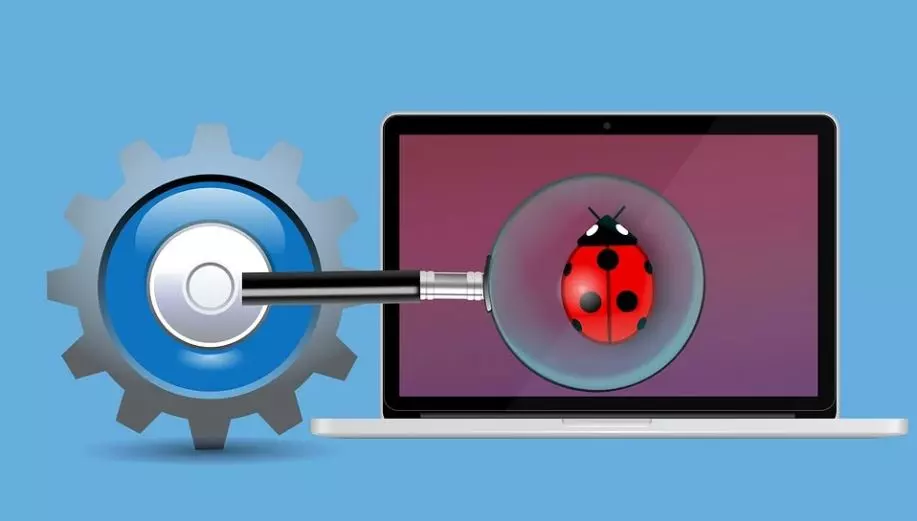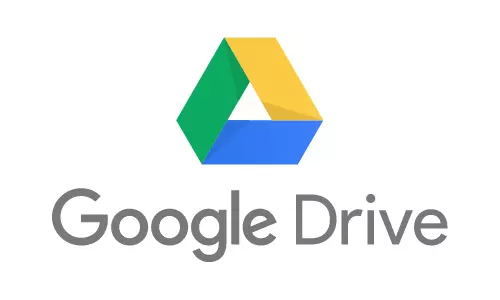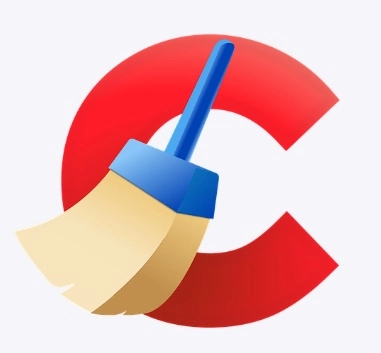Hello Learners, Today we will learn What are the Examples of Utility Software?
In this post, I will explain various types of utility software.
This Article is Best on the whole internet.
If you read this article carefully you will understand all about What is Utility Software?
I Guarantee you, after reading this article you will not need to read any other Articles. In fact, our readers are satisfied with this blog post.
What is Utility Software?
Utility software is a type of computer program which performs a specific task, as opposed to an application, which includes multiple features.
Some examples of utility software are free disk space analyzers, OS cleaners, and performance tools.
Utility software is often offered for free or at a reduced price to consumers through the most popular online download sites such as CNET downloads.
Utility software includes programs that are useful for maintaining a computer, managing files and folders, system monitoring, process and services management, performance analysis, backups, and disk utilities.
Any piece of computer software that provides an automated service to its user can be considered utility software.
Utility programs do not include features intended for entertainment, like games or music playing programs, and aren't usually as flashy as other types of applications.
They serve a very specific purpose and are therefore less complex than other kinds of programs.
Suggested video of Utility software for better understanding
What is Definition of Utility Software?
Utility software is also the application software of a computer system, which is used by people to do many of their tasks.
In simple language, utility software is called those software, the presence, and absence, of which software does not make any difference to the computer system, we call the software itself utility software.
People install utility software on their computers because they have to do some specific work.
Without utility software, you cannot do any specific task on your computer.
I hope you understand.
What are the Examples of Utility Software?
There are various examples of Utility Software, Which are given below.
- Antivirus Software
- File Management System
- Disk Management Tools
- Compression Tools
- Disk Cleanup Tool
- Disk Defragmenter
- Backup Utility
Read Basic Fundamental of Computer System
- What is Computer ?
- What is CPU ?
- What is Software?
- Basic Components of Computer
- Hardware Components of Computer
- Parts of Computer
- Generations of Computer
- Classifications of Computer
- Applications of Computer
- Uses of Computer System
- Functions of Computer
- Uses of Computer Graphics
- Uses of Internet
- Uses of Smartphones
- Uses of Mobile Phone
- Uses of Laptop
- Types of Laptop
- Different Types of Computer
- Types of Web Browser
- Block Diagram of Computer
- Advantages of Computer
- Disadvantages of Computer
- Characteristics of Computer
- Limitations of Computer
- Capabilities of Computer
- Elements of Computer System
- Structure of Computer
- Names of Computer
- What is Accuracy in Computer ?
- What is Speed in computer?
- Types of Operating System
- What is Pen Drive?
- What is Portable Computer and its types?
- Advantages and Disadvantages of Internet
- Advantages and Disadvantages of Mobile Phone
1. Antivirus Software

Examples of Utility software
Online threats are a serious problem. Viruses, malware, and hackers can ruin your computer and steal your data.
If you have antivirus software installed on your computer, it will help protect you from these threats.
Antivirus software is used to prevent, detect and remove viruses from your computer.
A virus is a malicious piece of code that infects other files or computers for the purpose of replicating itself.
The software is designed to perform these functions automatically without any human intervention.
It does this by scanning files on the hard drive for known patterns of viruses, comparing them with a database of stored virus patterns, and then taking appropriate measures such as deleting the file or quarantining it.
Antivirus software is software that protects computers from malicious software (malware), including viruses, worms, Trojan horses, ransomware, adware, spyware, and other harmful programs.
Antivirus software was developed to detect and remove computer viruses from infected computer systems.
There are various examples of antivirus software, which are given below.
- Microsoft Defender
- Norton 360 LifeLock
- Bitdefender Antivirus
- Malwarebytes
- McAfee Total Protection
- Quickheal Antivirus
There are various uses of Antivirus Software.
2. File Management System

Picture of File Management Tool
File Management Systems are the most basic of all types of software.
They are used to organize and store files on a computer, as well as index those files for easier retrieval.
Most computers come with a basic file management system that is built into the operating system.
However, you can also purchase a more robust file management system from a third party.
A File Management System is great for anyone who needs to find old files or organize their content in an efficient manner.
Here's how it works:-
You create folders to categorize your files.
You put any new files you create into these folders so they can be easily accessed later.
When you need to find a file from the past, you search through your folder categories until you find the file you're looking for.
There are various examples of file management tools, which are given below.
- eFileCabinet.
- Microsoft OneDrive.
- Dropbox.
- Apple iCloud.
- Google Drive.
3. Disk Management Tools
As you use your PC, the disk gets full. This is not a bad thing. It just means that you are using it to its fullest potential.
However, when the disk becomes too full, it’s not able to store any more data or applications until you remove some of the things you no longer need.
To make sure this never happens, make sure to use the right disk management tools every once in a while.
These tools vary depending on what operating system you are running and can be found in different places depending on where your computer stores them.
Disk management tools are a free, powerful resource that can help you optimize your computer's performance.
Disk management tools will show you how much data is on your hard drive and which files are taking up the most space.
It will also show you how fragmented your disk is as well as what's going on with any external drives connected to your system.
The information from a disk management tool can help you determine if it's time to delete some files or buy a new hard drive.
There are various examples of disk management tools, which are given below.
- MiniTool Partition Wizard
- AOMEI Partition Assistant SE
- Active Partition Manager
- EaseUS Partition Master
- GParted
4. Compression Tools
Compression tools are a set of computer programs that compress files. Compression is the process of taking data from a file and reducing its size of it.
A compression tool reduces the file's size by removing blank spaces, repeating characters in a string, or combining two or more redundant files into one file - all without affecting the data in any way.
Compressing a text document, for example, can cut its size in half. Compressing an image will reduce its size by about 30%.
Reduce the size of an MP3 file and you'll need less storage space for your device.
There are various examples of Compression tools, which are given below.
- WinZip
- WinRAR
- 7-Zip
- Zip Archiver
- PeaZip
5. Disk Cleanup Tool

Picture of Disk Cleaner Tool
Cleaning up your disk is one of the best ways to improve your computer’s performance.
Disk Cleanup Tool is a Microsoft utility that you can use to clean up all sorts of temporary files, including internet downloads, web browser cache, temporary Internet files, and much more.
The Disk Cleanup Tool lets you choose specific types of files to be deleted or removed.
You can also specify which hard drive to clean up or how much space to free up.
With these options at your disposal, you can quickly free up gigabytes of storage space on your computer without doing any work at all.
There are various examples of disk cleanup software, which are given below.
- Iolo System Mechanic
- Restoro
- IObit Advanced SystemCare Free
- Piriform CCleaner
- Ashampoo WinOptimizer
- CCleaner
6. Disk Defragmenter
In the past, computers had a lot of free space on their disks.
As a result, when you ran a disk defragmenter it didn’t take very long to finish.
But today’s hard drives are formatted in a way that makes your computer think it has more free space than it really does.
This means that when you run a disk defragmenter, it takes longer to complete.
Disk defragmenters are utilities designed to rearrange data on a hard drive so that it is more evenly distributed and can be read from quicker.
It's important to use disk defragmenters periodically in order to keep the system running smoothly.
Defragmenting a hard drive will not only increase its speed but will also help avoid file fragmentation that can lead to system crashes.
7. Backup Utility
A backup utility is a software application that automatically backs up your data.
It can be external or internal hard drives, DVDs, CDs, and even online storage.
A backup utility ensures that you never lose your important data.
When it comes to backing up your data, you have two options: manual or automated.
Manual backups are the easiest to set up but require frequent attention.
You need to remember to update the backup on a regular basis so that you don't risk any lost data over time.
Automated backups take care of this for you, so all you need to do is set them up and forget about them until you need them.
There are many different kinds of backup utilities with their own advantages and disadvantages.
There are various examples of backup software, which are given below.
- Acronis True Image
- Backblaze
- Carbonite
- EaseUS ToDo Backup
- NovaBackup
What are the Advantages of Utility Software?
There are various advantages of utility software, which are given below.
- Utility Software Enhances performance.
- Utility Software Manages your Computer space.
- Utility Software Manages your PC files and data.
- Utility Software helps to recover the files after a loss.
- Utility Software keeps your computer system safe and secure.
- Utility Software helps to customize the interface of the desktop.
- Utility Software helps to remove useless files on your computer.
What are the Disadvantages of Utility Software?
There are three disadvantages of a utility software, which are given below.
- Utility Software Slows your computer system.
- Utility Software takes more RAM space.
- Too much Utility Software heat your computer systems.
What are the Types of Utility Software?
There are different types of utility software, which are given below.
FAQ Related to Utility Software
What are the 10 examples of utility software?
The 10 examples of utility software, which are given below.
- CCleaner
- Everything
- KeyFinder
- iMonitor EAM
- Partition Wizard
- PC Startup Master 3
- iolo System Mechanic
- LSoft Active@ ISO Manager
- IObit Advanced SystemCare
- NET Protector PC Optimizer 2.0
We hope that you have fully understood about examples of utility software and what is utility software?, if you still have not understood, then please comment on us.
If you liked this article, then you can share this post.
I found the information helpful throughout my Revision.
Thanks, ERIC
This gave a strong foundation for understanding utility softwares to me
Thanks Amama